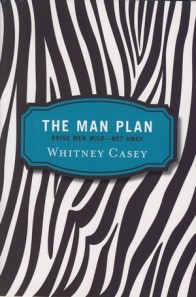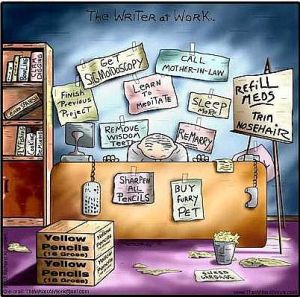 Writer’s Block. That terrible, ever-lurking antithesis to “the flow” of which writers speak is a very real thing. To someone who does not write extensively, it may seem easy to cast the notion off as silly, and inextricably linked to ego, but in reality, it can interupt a writer’s work and frustrate the bejesus out of them. Flow, on the other hand, is that glorious pace a writer can find where the words seem to come from the fingers (or pen) first and the mind later. It’s a constant race to keep up with yourself before the next moment flutters out of your mind like a butterfly and is lost forever. This can last four hours before the writer is broken from the trance and brought back to the reality of dinner that must be made, day jobs that must be worked, and bills that must be paid.
Writer’s Block. That terrible, ever-lurking antithesis to “the flow” of which writers speak is a very real thing. To someone who does not write extensively, it may seem easy to cast the notion off as silly, and inextricably linked to ego, but in reality, it can interupt a writer’s work and frustrate the bejesus out of them. Flow, on the other hand, is that glorious pace a writer can find where the words seem to come from the fingers (or pen) first and the mind later. It’s a constant race to keep up with yourself before the next moment flutters out of your mind like a butterfly and is lost forever. This can last four hours before the writer is broken from the trance and brought back to the reality of dinner that must be made, day jobs that must be worked, and bills that must be paid.
I don’t know what other writer’s do when they experience Writer’s Block. I’ve found sites for writing prompts and ideas, but ultimately a prompt that says “write about a red ball” is unlikely to shake me out of reality, and back into that dream world that writers create for themselves. Someone once told me to keep my head above the clouds. My immediate reaction was that it was mis-phrased; it should have read keep your head out of the clouds. I didn’t understand properly then what was meant by that, but I do now. Above the clouds is where creativity flows, and sometimes it is impossible not to come down, into the clouds, and subsequently back into reality where there is traffic, phones ringing, appointments, and all of the mundane practices that make up this thing we call life.
When I have Writer’s Block, I read. I’m always reading something, and in fact, I can hardly remember a period of time where I wasn’t completely absorbed in one book or another. For the year I wrote literally nothing, I was completely wrapped up in Stephen King’s The Dark Tower series, a seven book monolith that makes The Stand look like a Sunday paper.
This may explain the current state of my bookshelf. I’ve rationalized my Writer’s Block down to a few things, including the fact that I have my first short story making its rounds in literary magazines and contests, and somewhere deep inside me I am waiting for judgement/affirmation. The second cause is related to research. My book-in-progress is deeply rooted in religion, mythology, psychology, and to some extent, sociology. At 20,000 words I simply hit a point where the idea was no longer enough, I needed background knowledge to keep the train chugging along.
So, for a little change, I am offering my weekend reading list.
1984 by George Orwell
Until now, I hadn’t read this book. Not only did I know that I must read it because it is a classic, but the subject matter interests me greatly. I can hardly put it down and it has been dominating my reading for the last week. I plan to finish the last 30 or so pages today. While reading it I have to constantly remind myself that it was written in 1949, and renew my admiration for Orwell’s construction of a future society. As a sociologist at heart, this book is fascinating.
The Almost Moon by Alice Sebold
I found Sebold during a seminar course on Ethnography in my undergraduate degree. Our professor assigned Lucky, a biographical account of her rape while attending college. The Lovely Bones was her next book, which also took me in. I expect The Almost Moon to live up to my expectations of Sebold’s ability to capture me.
2009 Novel & Short Story Writer’s Market
Otherwise known as the bible. I am going through this volume painstakingly, absorbing all of the information about the publishing industry I can cram into my 26 year old brain. What are agents, publishers, and editors telling me? How can I use it in the future? I know that I can break down countless boundaries if I am prepared, and I intend to be.
The Lilith Monographs Vol. I: Immaculata by Joshua Seraphim
This is directly related to my book, in which the main character is Lilith, or rather my version of her.
Lilith: The First Eve by Siegmund Hurwitz
See above.
Glimmer Train Spring 2009 Issue 70
Glimmer Train is the first literary magazine I have subscribed to. The first issue arrived in my mailbox on Friday and since then it has been waiting patiently underneath 1984, waiting to be picked up next. I’m reading it partly to learn what other writer’s are selling, to compare as objectively as I can, the quality of the work therein versus my own, and to absorb great literature from the future authors of classics that will come about in my life time. As my writing income grows, so too will my collection of literary magazines. For those who do not subscribe, I highly recommend it.
The Audacity of Hope by Barack Obama
This is a slow read for me. I can only keep my attention focused on congressional history and legislative process for so long. I also feel this is a necessary read. Obama is an eloquent and moving writer, and knowing full well that he will become known as one of the great thinkers of our time, I am compelled to read through the political jargon to hear the message behind it.
Defending the Damned by Kevin Davis
This was recommended to me by a friend who works in the legal system in the United Kingdom. It focuses on a public defender in Chicago, named Marijane Placek, a “snakeskin boot-wearing, Shakespeare quoting nonconformist.” Needless to say, she knows my taste.
What’s on yours?
 When the first episode of Lost aired, and we met John Locke, I phoned my mother and told her that I was already on to something. The name, John Locke, was significant because in the year before, I had taken a course on political philosophy and had read John Locke. And, for the next couple of seasons I was left wondering if that was a coincidence or not (I highly suspected not). Then we meet Jeremy Bentham, and my suspicions were confirmed; John Locke’s character is based on early policitical philosophers who discussed such issues as the social contract and utilitarianism (the greatest good for the greatest number and so forth…). It made perfect sense.
When the first episode of Lost aired, and we met John Locke, I phoned my mother and told her that I was already on to something. The name, John Locke, was significant because in the year before, I had taken a course on political philosophy and had read John Locke. And, for the next couple of seasons I was left wondering if that was a coincidence or not (I highly suspected not). Then we meet Jeremy Bentham, and my suspicions were confirmed; John Locke’s character is based on early policitical philosophers who discussed such issues as the social contract and utilitarianism (the greatest good for the greatest number and so forth…). It made perfect sense.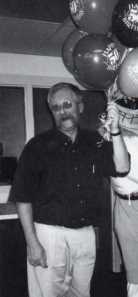 For many the name Ronald MacDonald might conjur images of a red-haired clown who peddles french fries and cheesburgers. In my case, it conjurs images of a red-haired teacher who peddled the English language and literature. Ron MacDonald was one of my most memorable teachers in high school.
For many the name Ronald MacDonald might conjur images of a red-haired clown who peddles french fries and cheesburgers. In my case, it conjurs images of a red-haired teacher who peddled the English language and literature. Ron MacDonald was one of my most memorable teachers in high school. Writer’s Block. That terrible, ever-lurking antithesis to “the flow” of which writers speak is a very real thing. To someone who does not write extensively, it may seem easy to cast the notion off as silly, and inextricably linked to ego, but in reality, it can interupt a writer’s work and frustrate the bejesus out of them. Flow, on the other hand, is that glorious pace a writer can find where the words seem to come from the fingers (or pen) first and the mind later. It’s a constant race to keep up with yourself before the next moment flutters out of your mind like a butterfly and is lost forever. This can last four hours before the writer is broken from the trance and brought back to the reality of dinner that must be made, day jobs that must be worked, and bills that must be paid.
Writer’s Block. That terrible, ever-lurking antithesis to “the flow” of which writers speak is a very real thing. To someone who does not write extensively, it may seem easy to cast the notion off as silly, and inextricably linked to ego, but in reality, it can interupt a writer’s work and frustrate the bejesus out of them. Flow, on the other hand, is that glorious pace a writer can find where the words seem to come from the fingers (or pen) first and the mind later. It’s a constant race to keep up with yourself before the next moment flutters out of your mind like a butterfly and is lost forever. This can last four hours before the writer is broken from the trance and brought back to the reality of dinner that must be made, day jobs that must be worked, and bills that must be paid.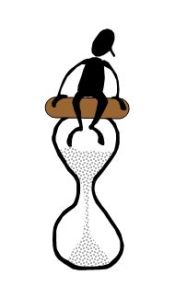 It is August, and I hand my mother a list. She looks at it, and then looks back at me; it’s my Christmas wish list (including a section for Birthday, which falls 13 days before Christmas). She puts it on the fridge, and there it sits until December, when normal people start thinking about Christmas. But, in my head, I have been unwrapping gifts since before Labour Day.
It is August, and I hand my mother a list. She looks at it, and then looks back at me; it’s my Christmas wish list (including a section for Birthday, which falls 13 days before Christmas). She puts it on the fridge, and there it sits until December, when normal people start thinking about Christmas. But, in my head, I have been unwrapping gifts since before Labour Day.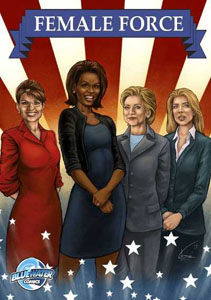 In honor of Women’s History Month, weekend reading is focused on women in the media. The media, I would argue, is one of the last great vestiges of The Patriarchy. This is evident in journalism, the television and film industries, and the literary world. Allow me to demonstrate.
In honor of Women’s History Month, weekend reading is focused on women in the media. The media, I would argue, is one of the last great vestiges of The Patriarchy. This is evident in journalism, the television and film industries, and the literary world. Allow me to demonstrate.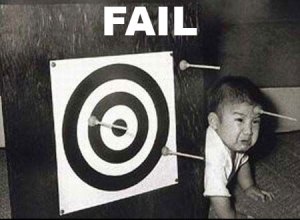
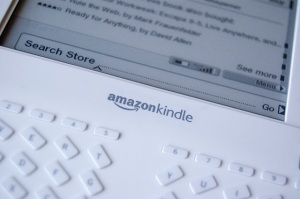 Last time, I talked about the supposed demise of books due to the technological revolution and the uphill battle that publishers and pushers of paper of all kinds are facing with the combined force of a weakened economy and a (relatively) free forum like the Internet from which to gather information. I questioned
Last time, I talked about the supposed demise of books due to the technological revolution and the uphill battle that publishers and pushers of paper of all kinds are facing with the combined force of a weakened economy and a (relatively) free forum like the Internet from which to gather information. I questioned 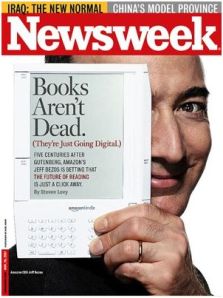 There is no doubt that as a society we are bombarded by media from the moment we wake until the moment our heads hit the pillow (or longer, if you fall asleep with the television on). News, movies, television, magazines, YouTube, Facebook, billboards, it’s everywhere. But what of books?
There is no doubt that as a society we are bombarded by media from the moment we wake until the moment our heads hit the pillow (or longer, if you fall asleep with the television on). News, movies, television, magazines, YouTube, Facebook, billboards, it’s everywhere. But what of books?